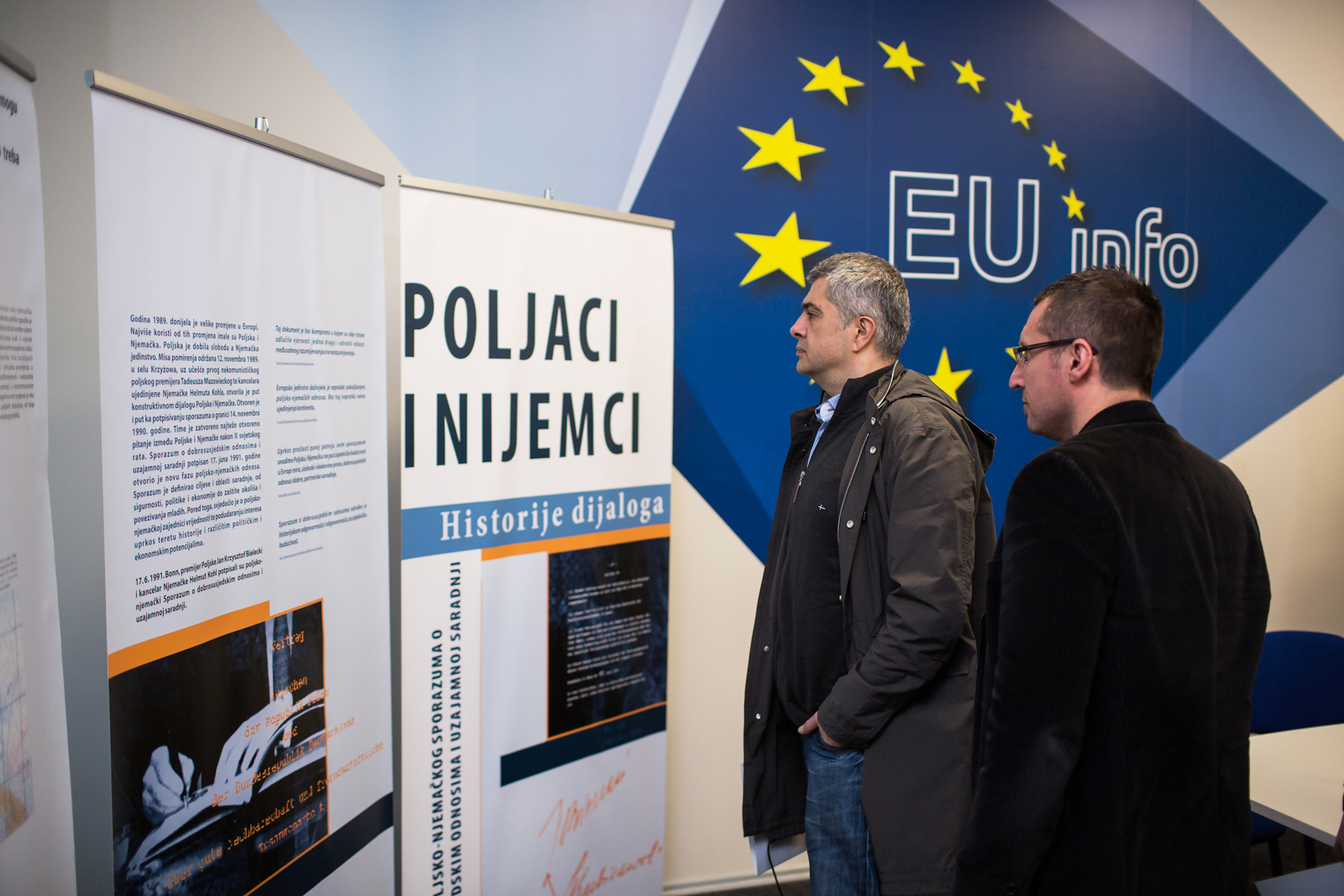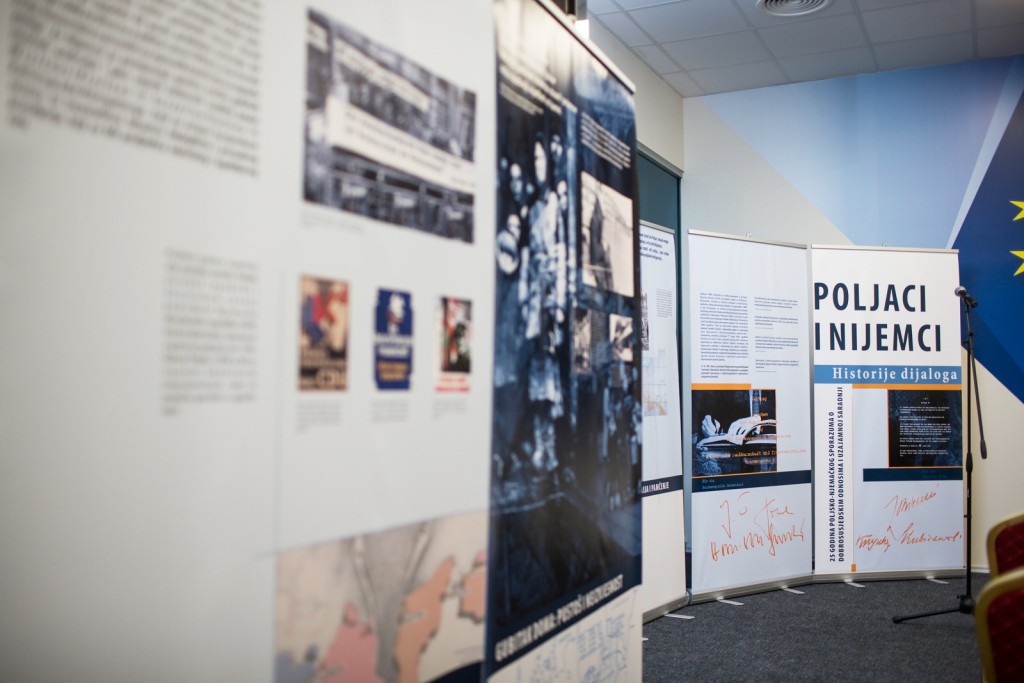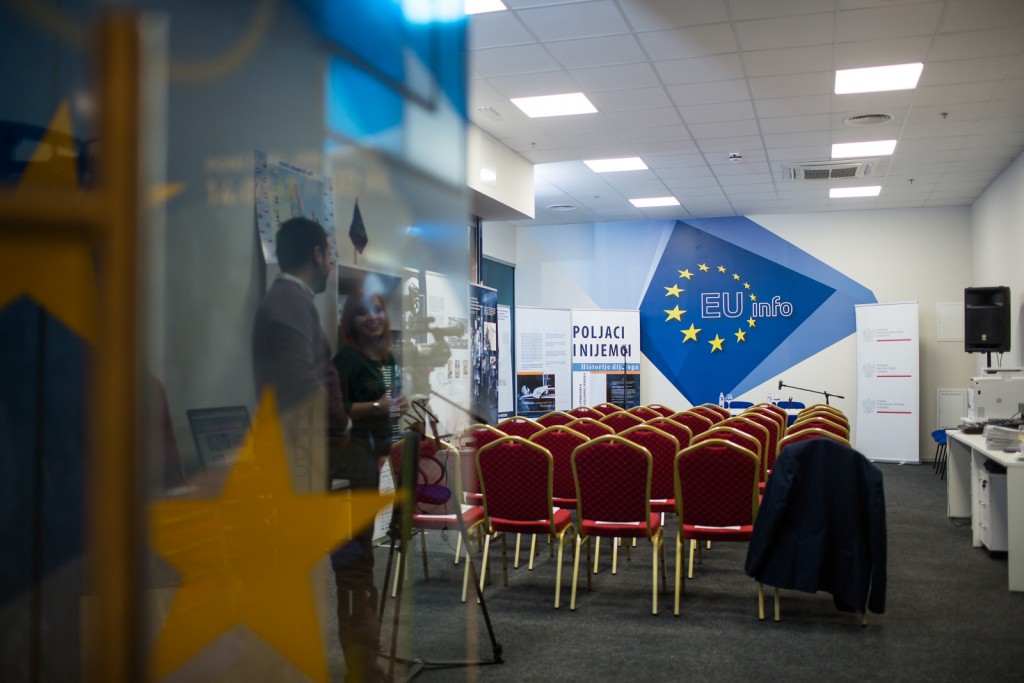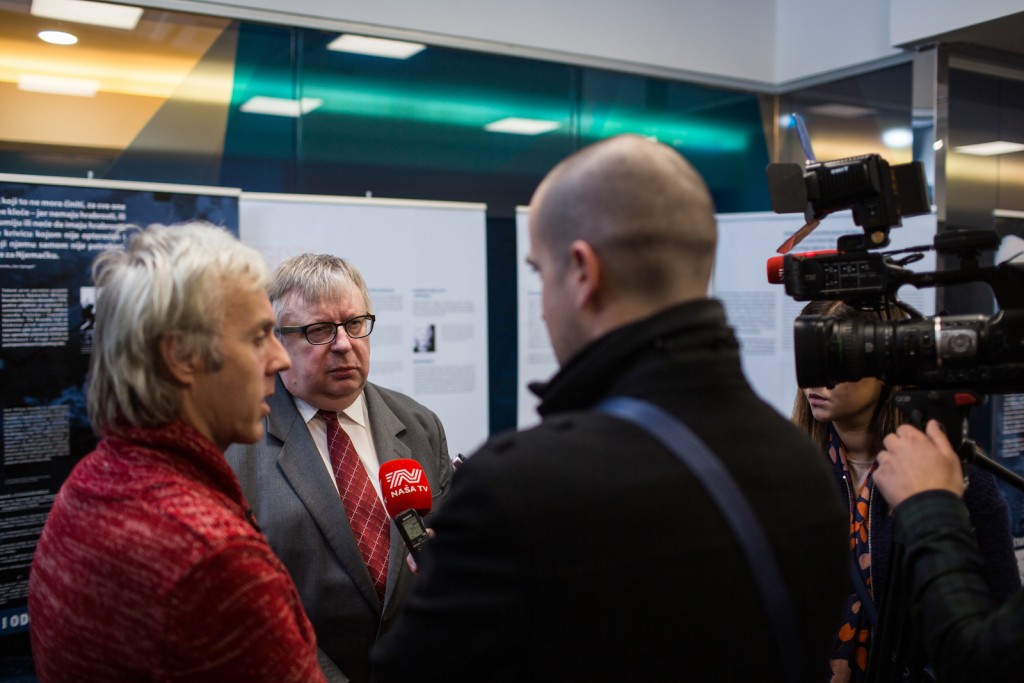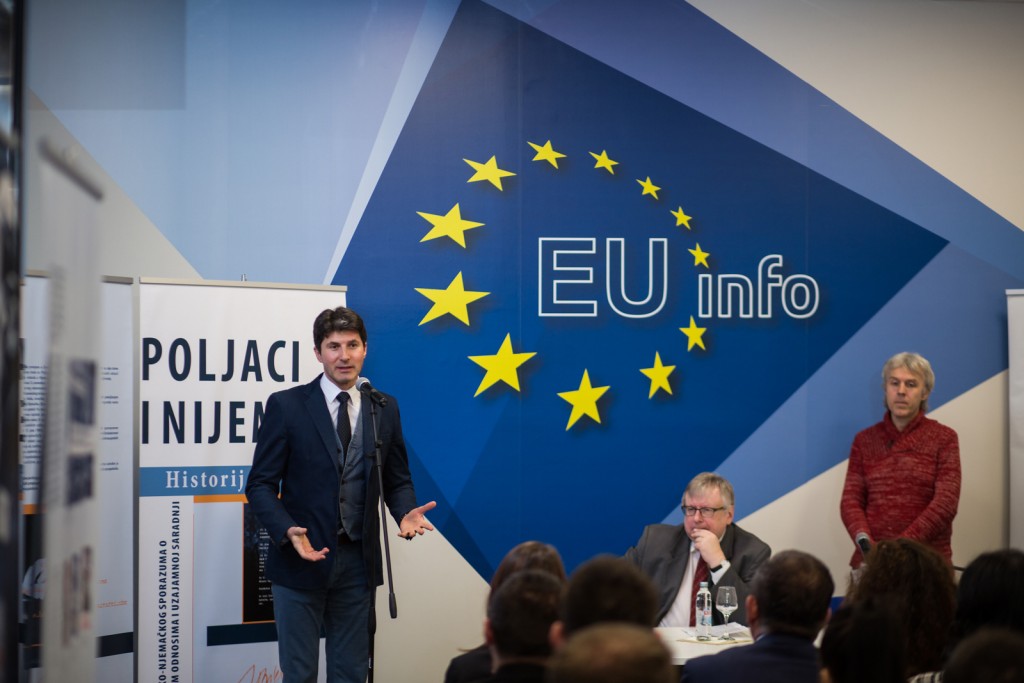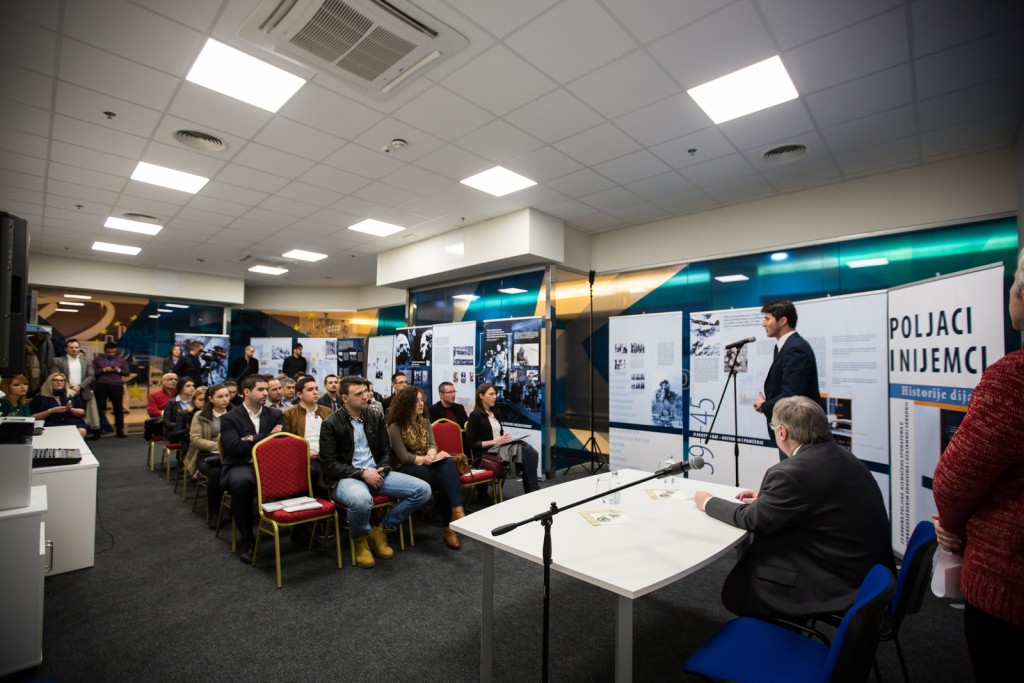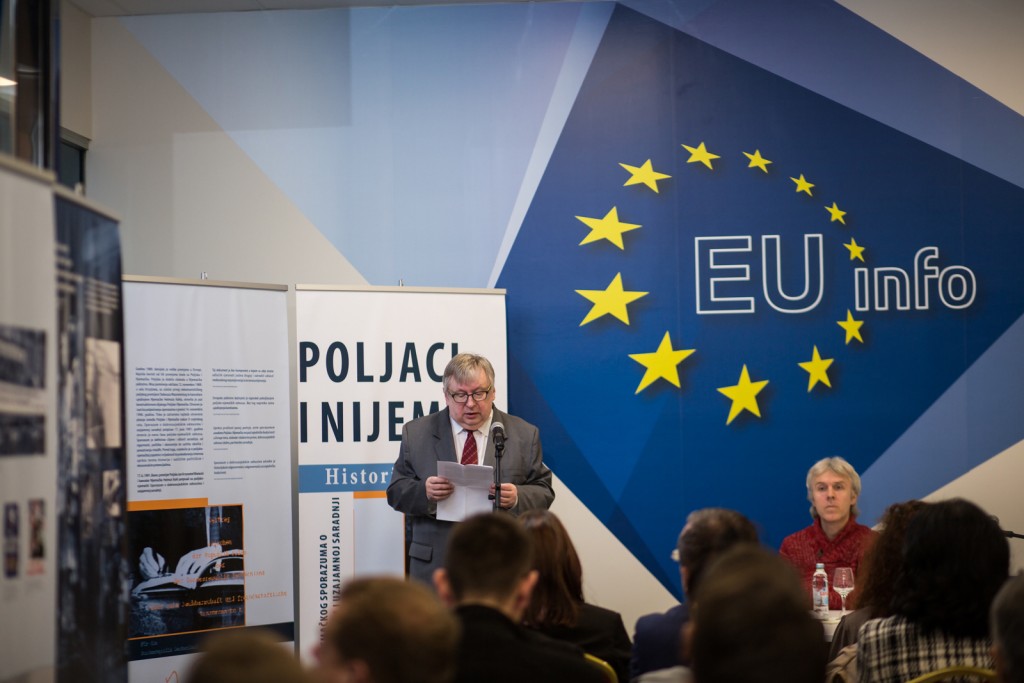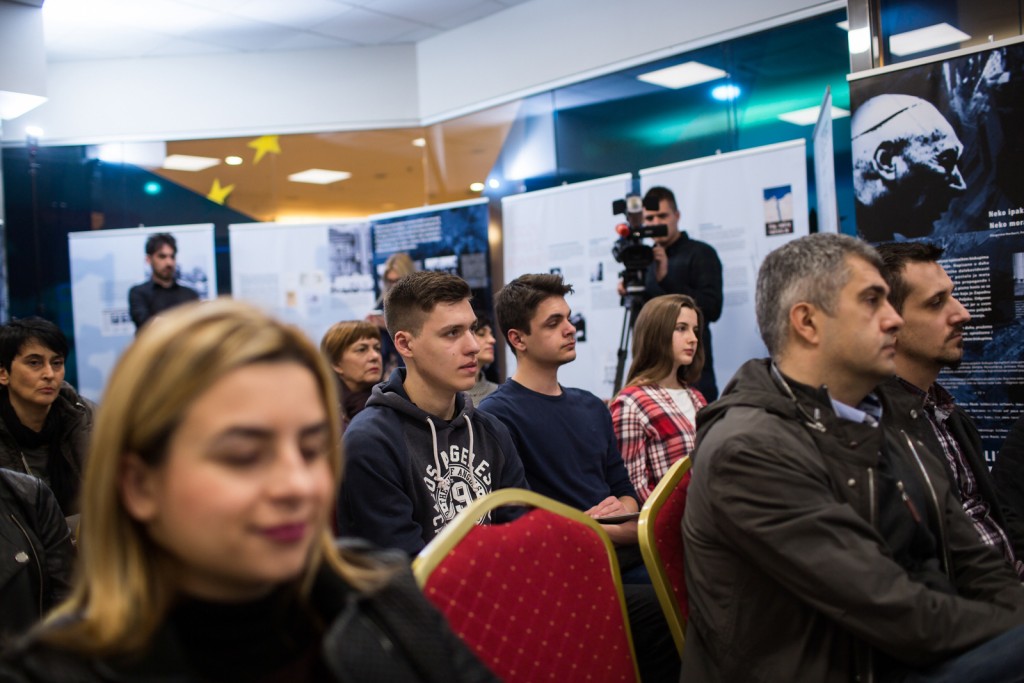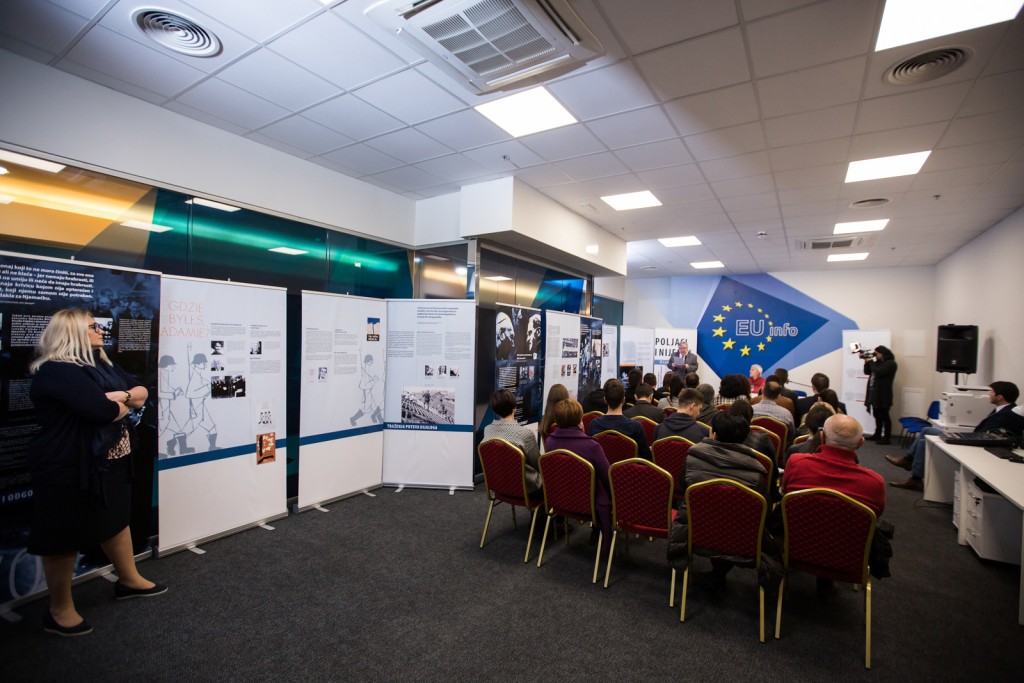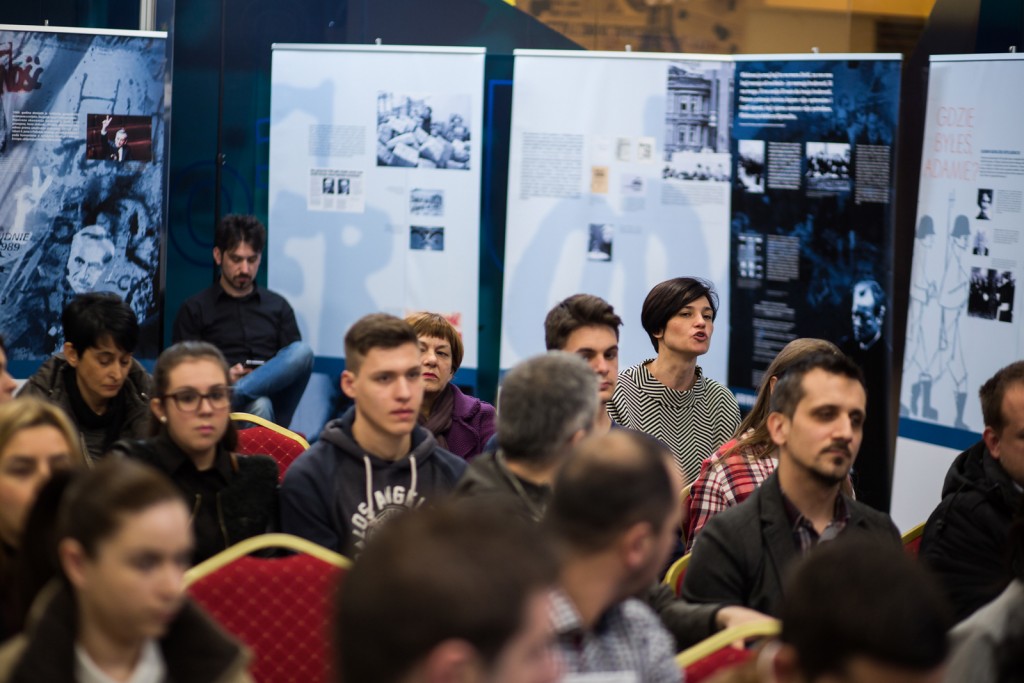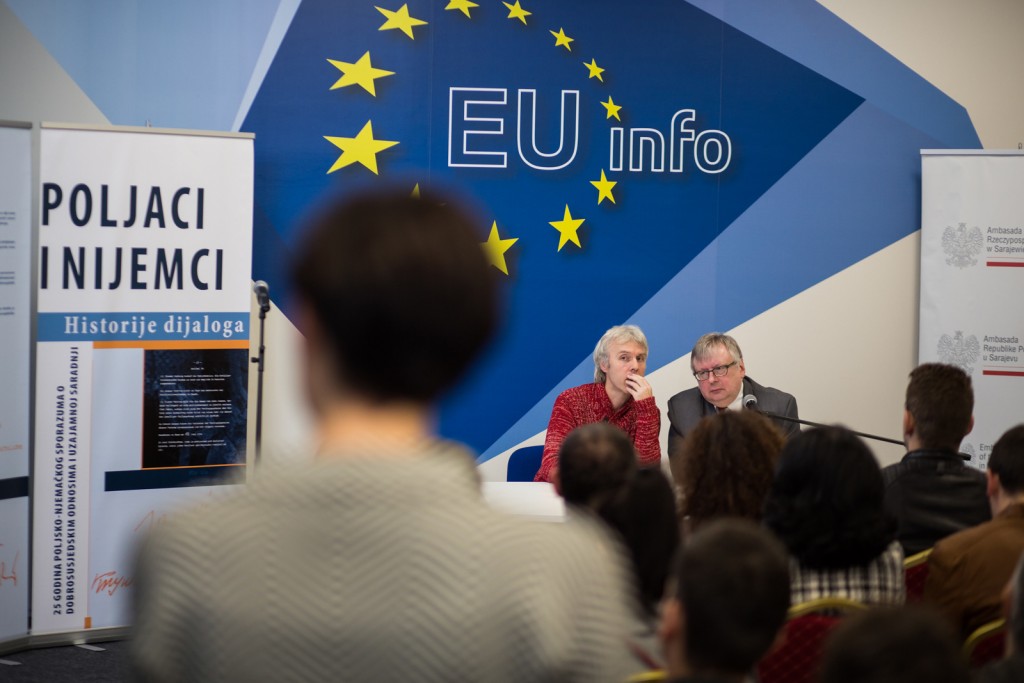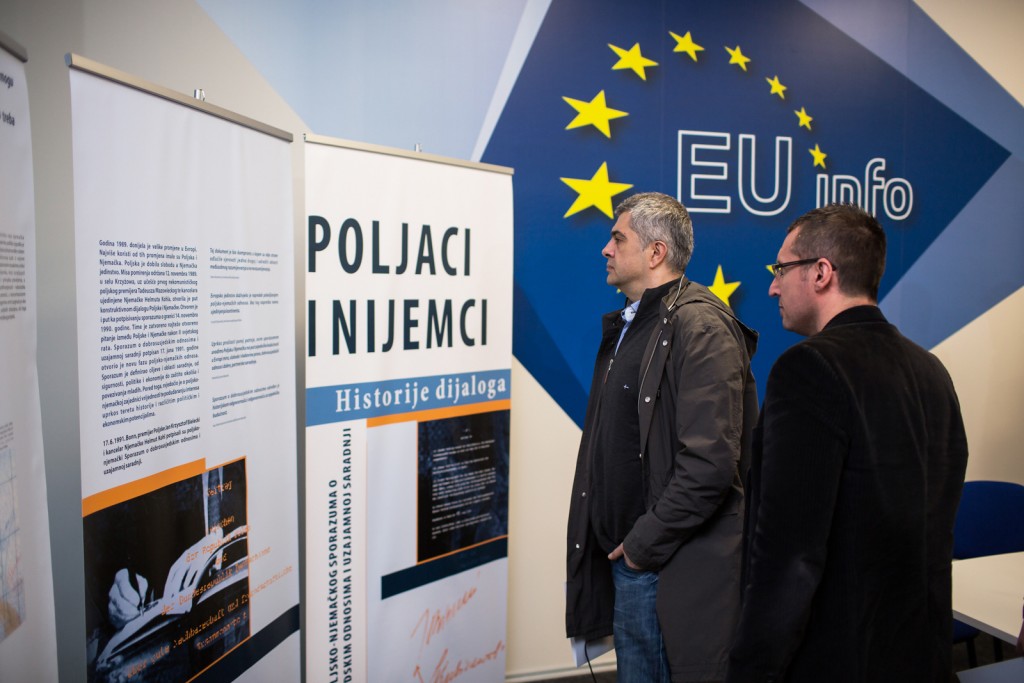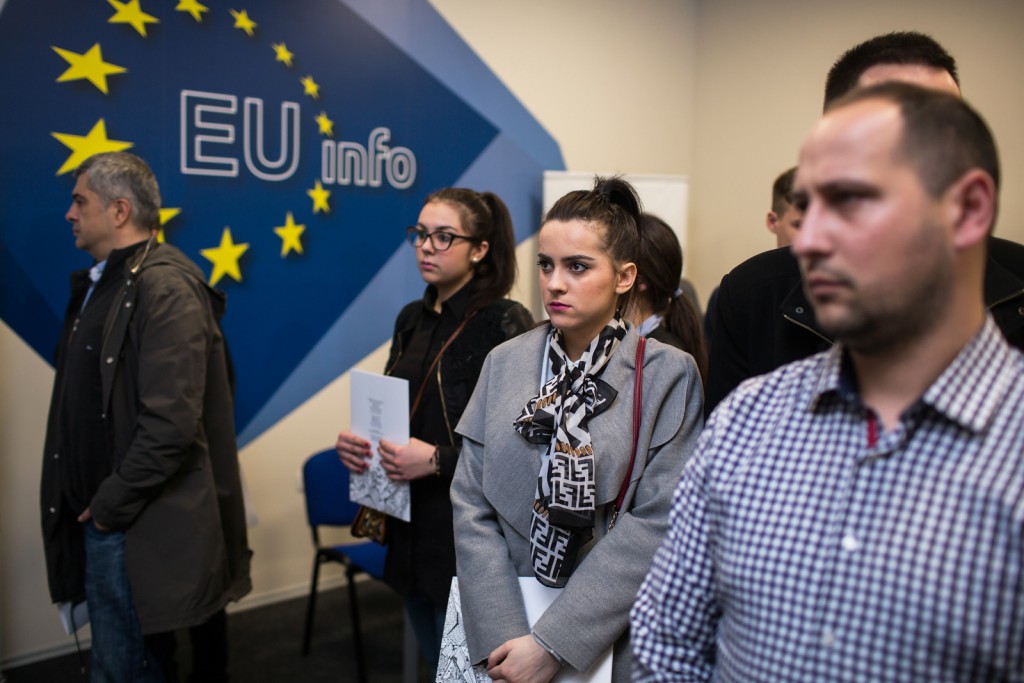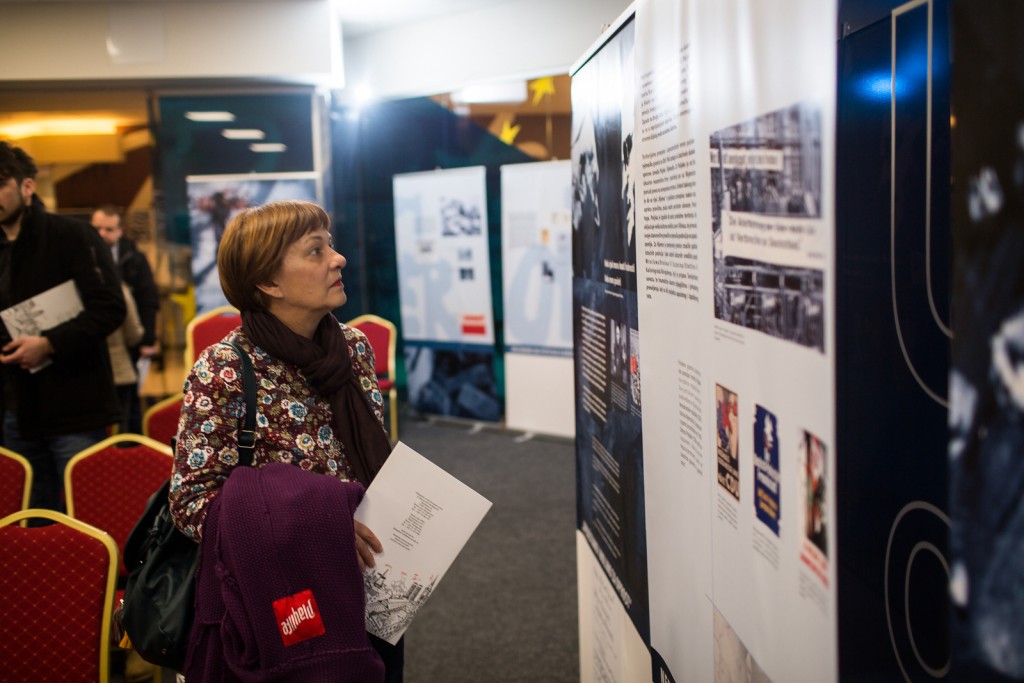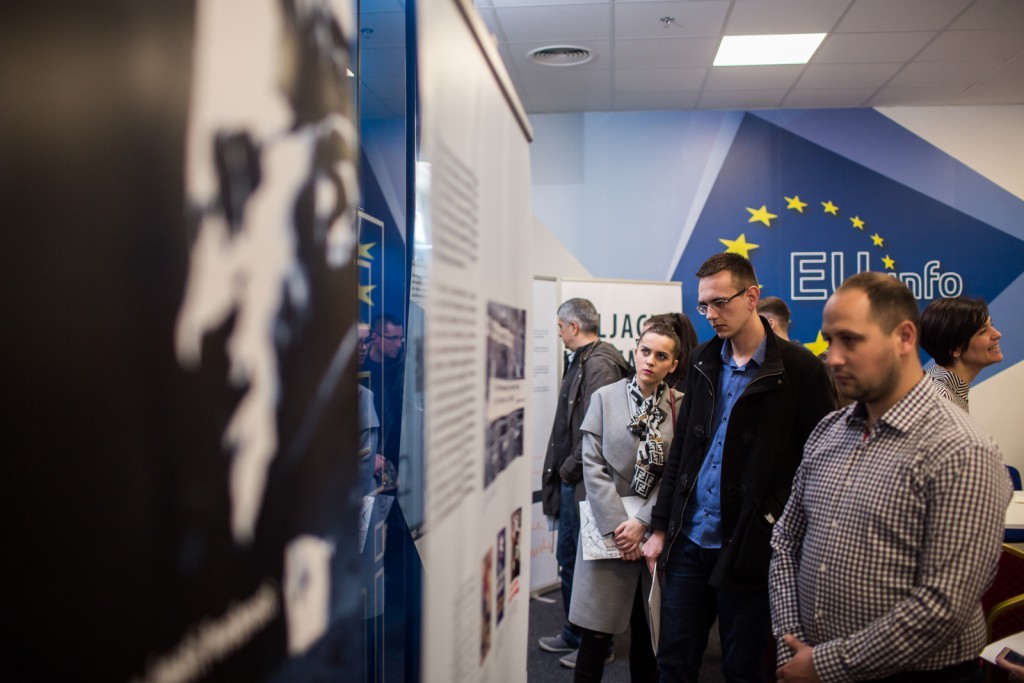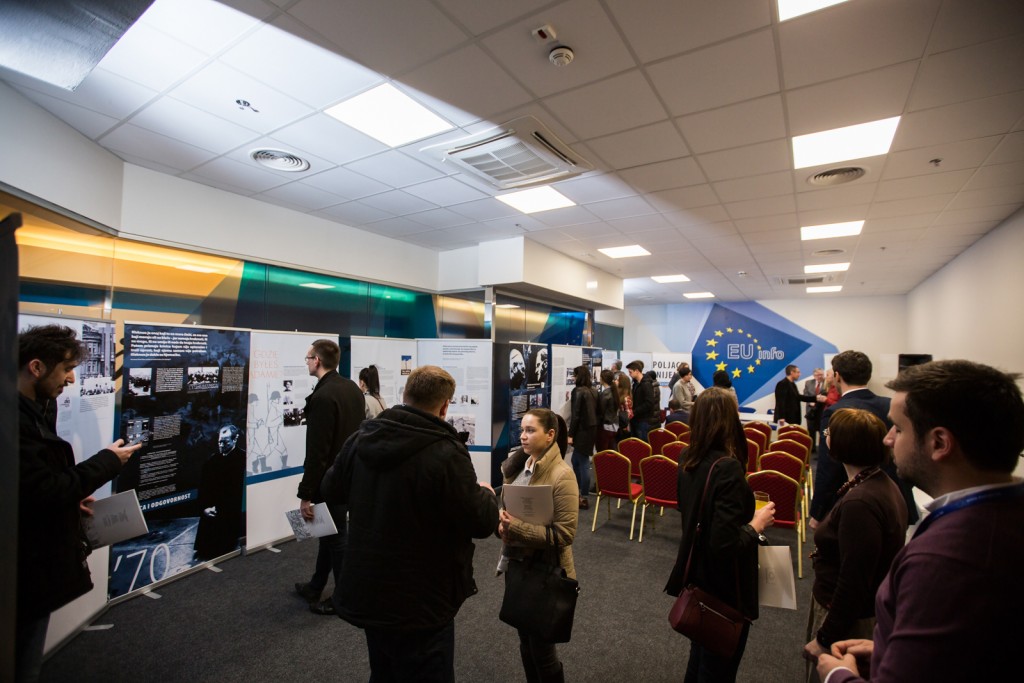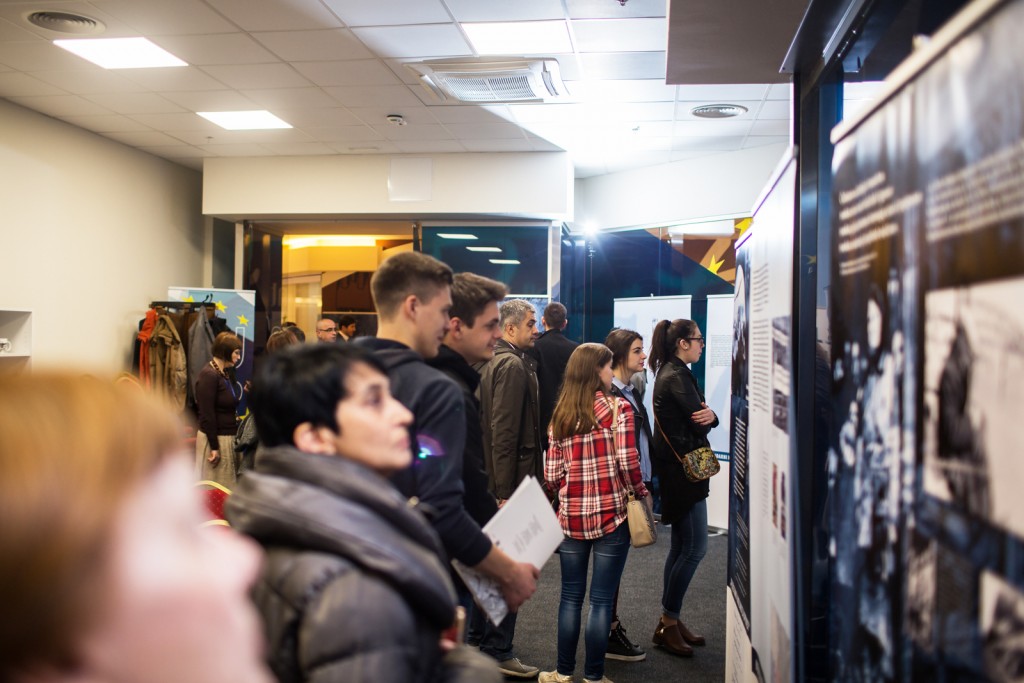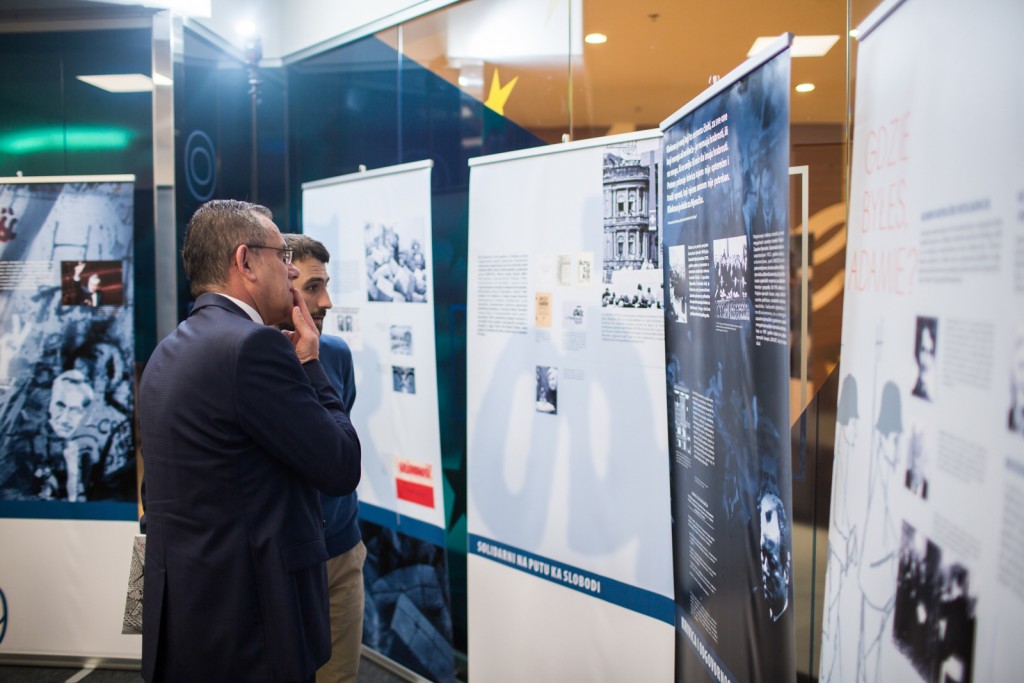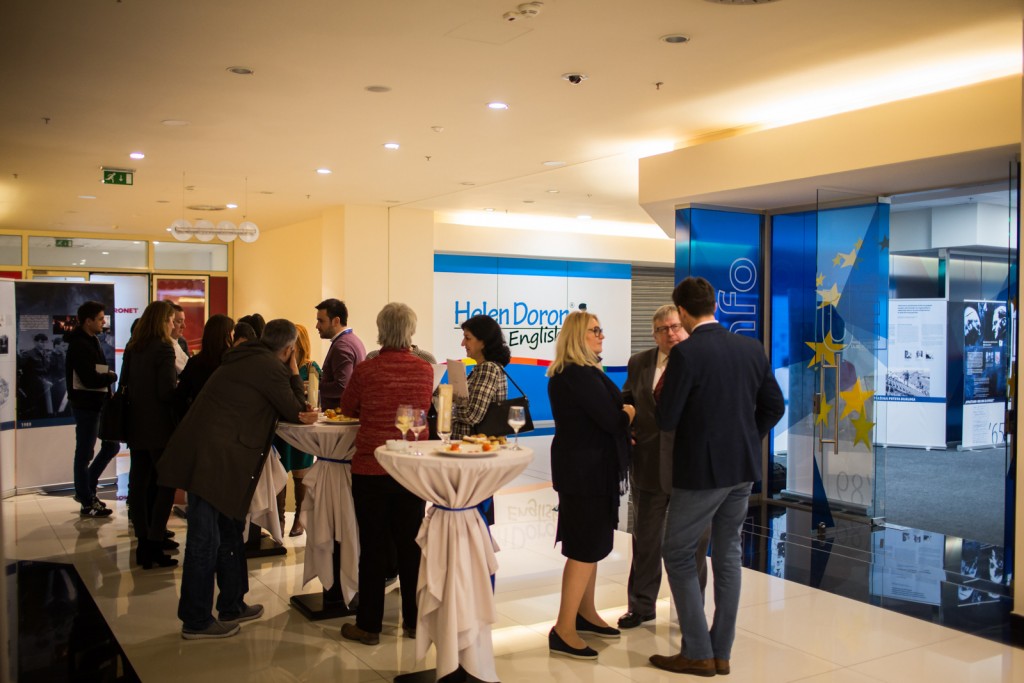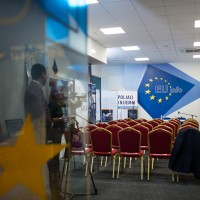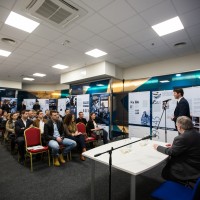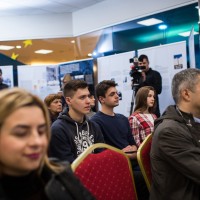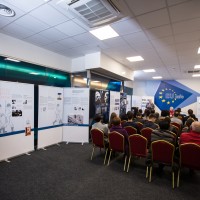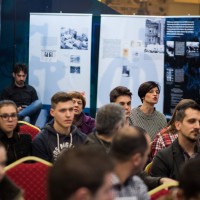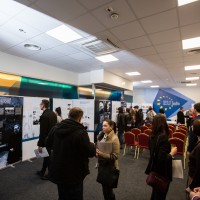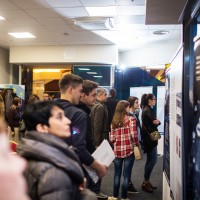To mark the 25th anniversary of the signing of the Polish-German Treaty on Good Neighbourly and Friendly Relations, the EU Info Centre and the Embassy of the Republic of Poland in BiH organised the exhibition titled “Poles and Germans – Histories of dialogue” on Tuesday, 28th February in Mostar.
On this occasion, H.E. Andrzej Krawczyk, the Ambassador of the Republic of Poland in BiH stressed out that the foundation of each reconciliation is the understanding of the other side.
“There are many agreements on cooperation of neighbouring countries around the world, but this is one is particularly important and worth remembering. In principle, it is considered the end the process of shaping the political map of our continent and without the true reconciliation of the two nations, the construction of a new and better Europe would not be possible”, Ambassador Krawczyk said.
Opening of the exhibition was followed by an interesting discussion between the Ambassador and Mostar youth on the topic of reconciliation.
Answering a question about the lessons to be drawn from the contemporary Polish and German relations, Ambassador Krawczyk said: “I would like this exhibition to be used as a basis for the consideration of values in public life, society, and the country. May the act of Polish bishops and the German Chancellor and the model of reconciliation between Poland and Germany serve as inspiration for both the local politicians and all of us. Today, we’re presenting the exhibition on morality, responsibility and wisdom of politicians in such a special city of Mostar. This is not a coincidence”.
The German-Polish Treaty of Good Neighbourship and Friendly Cooperation, signed on 17th June 1991 started a new stage in the Polish-German relations. The Treaty set goals and cooperation areas from security, politics and economy to environmental protection and youth exchanges. At its heart, the Treaty testified about the Polish-German common values and the same interests, despite the difficult past, as well as the difference between political and economic potential.
The exhibition will be displayed and open for public in the EU Info Centre in Mostar (address: Kardinala Stepinca bb, Mepas Mall, IV floor) on working days from 14:00 to 17:00 hrs until March 10th.
